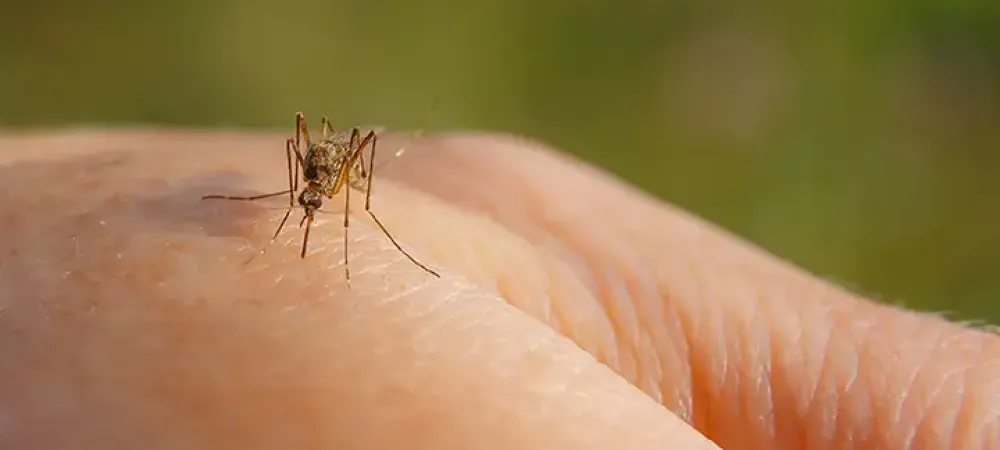The Best Scents to Naturally Repel Mosquitoes

As warm weather returns to Tennessee, so do the mosquitoes. Whether you're enjoying a barbecue in Murfreesboro or watching the sunset from your porch in Nashville, nothing disrupts the peace quite like the persistent buzz and bite of a mosquito. Aside from being annoying, these insects can carry diseases like West Nile virus and La Crosse encephalitis, making mosquito control an important part of outdoor living.
While chemical sprays can be effective, many Tennesseans are exploring gentler, more eco-friendly ways to keep mosquitoes at bay. Natural scents offer a compelling alternative—plant-based solutions that are not only pleasant to humans but also naturally offensive to mosquitoes. In this blog, we’ll explore the best natural scents known to repel mosquitoes, how they work, and how to use them effectively in your yard and home.
Understanding Why Scents Matter to Mosquitoes
Mosquitoes rely on their highly sensitive sense of smell to find their targets. They’re attracted to carbon dioxide, sweat, body heat, and other chemical markers that humans release. Certain plants release natural chemicals known as volatile organic compounds, or VOCs, that can mask or interfere with these attractants. This makes it harder for mosquitoes to find you.
You can use these plant-based scents in a variety of ways—by growing specific plants in your garden, applying essential oils to your skin, or using natural sprays and burners. Each method has its own strengths, and combining them often offers the best results.
The Most Effective Natural Scents for Repelling Mosquitoes
Citronella
Citronella has been a go-to mosquito repellent for decades, and for good reason. Derived from lemongrass, this lemony scent masks the smells mosquitoes use to locate people. You’ll often see it used in candles and sprays, but the live plant itself can also be helpful when placed strategically around your home. While effective, its protection doesn’t last as long as synthetic repellents and needs frequent reapplication, especially on breezy days.
Lemon Eucalyptus
Lemon eucalyptus is not just a pleasant-smelling oil—it contains PMD, a compound that research shows can be as effective as DEET in repelling mosquitoes. This makes it one of the strongest natural options available. It can be found in many over-the-counter repellents or used as an essential oil, though it should always be diluted before applying to skin.
Lavender
While its calming aroma makes it a favorite for relaxation, lavender has the opposite effect on mosquitoes. It’s been shown to repel species like Aedes aegypti, which is responsible for transmitting illnesses like Zika. Whether you choose to grow lavender in your garden, apply diluted oil to your skin, or place sachets indoors, this multi-use plant is as practical as it is pretty.
Peppermint
Peppermint has a sharp, refreshing scent that mosquitoes dislike. It can be used in diluted essential oil sprays or grown in pots to create a natural barrier around your home. As a bonus, it also helps repel ants, spiders, and ticks. Just be careful—peppermint spreads aggressively in garden beds, so container planting is usually the better option.
Basil
Basil does more than flavor your pasta sauce. This herb—especially varieties like lemon basil or cinnamon basil—has natural mosquito-repelling properties. You can grow it in pots or garden beds near outdoor seating areas. Crushing a few leaves and rubbing them on your arms or legs offers a short-term repellent effect, useful for quick outdoor tasks or garden work.
Rosemary
With its woodsy scent and hardy nature, rosemary is another useful plant for mosquito control. It can be grown in the garden or in containers, and its sprigs can be tossed on the grill or firepit to release a mosquito-repelling smoke. The essential oil version also makes a great ingredient for homemade sprays.
Thyme
Thyme’s earthy aroma makes it a lesser-known but effective mosquito deterrent. Crushing the leaves releases the essential oils, and you can also burn dried thyme to create a smoke that repels mosquitoes. It’s a low-maintenance plant that works well in borders, rock gardens, or containers.
Making Natural Scents Work for You
To get the most out of these natural repellents, it's important to use them the right way.
Start with placement. When using plants, focus on high-traffic areas—near doors, windows, patios, and gathering spaces. Grouping several mosquito-repelling plants together will have more impact than scattering them sparsely around the yard.
Essential oils should always be diluted with a carrier oil, such as coconut or jojoba oil, before applying to your skin. This helps reduce the risk of irritation. You can also add essential oils to water-based sprays, diffusers, or cotton balls placed near windows and doors.
Burning dried herbs like rosemary or thyme is another effective tactic. Just be sure to use caution, especially during dry weather or in fire-prone areas. You can also create DIY mosquito sprays using essential oils, witch hazel, and water. Keep in mind these natural solutions may need to be reapplied every hour or two for continued effectiveness.
Limitations and Considerations
Natural mosquito repellents offer many benefits, but they’re not foolproof. Effectiveness can vary depending on the mosquito species in your area, the concentration of the scent, and your body chemistry. Unlike synthetic repellents, natural oils tend to evaporate quickly, which means they need to be reapplied more frequently.
Some essential oils can cause skin irritation, especially in children or people with sensitive skin. It’s always best to do a patch test before applying any new product.
Ultimately, natural repellents work best when combined with other mosquito control strategies—like removing standing water, maintaining your lawn, and treating your yard if necessary.
Nature Can Help—But So Can We
Natural scents offer a safe and often pleasant way to reduce mosquito activity, especially for those who want to avoid harsh chemicals. Whether it’s planting basil near the deck or using a lemon eucalyptus spray before heading out, nature provides many tools to fight back against mosquitoes.
However, in Tennessee’s humid climate, mosquitoes can be persistent. That’s why Sherrill Pest Control offers long-lasting mosquito treatments designed to give you extended protection where natural solutions fall short.
If you’re tired of constantly reapplying sprays or battling bites all summer, we’re here to help. Our professional mosquito treatments are tailored for Tennessee yards and designed to keep your outdoor spaces comfortable and bite-free.
Contact Sherrill Pest Control today to schedule a consultation and learn more about our seasonal mosquito control services.
